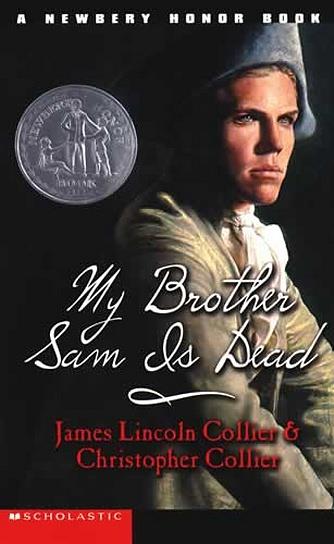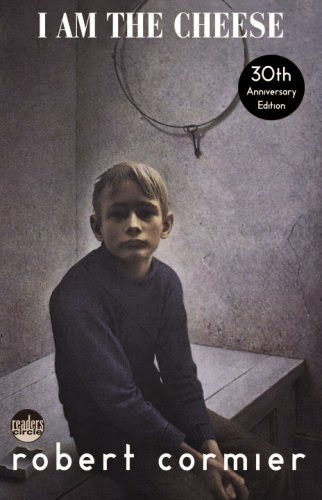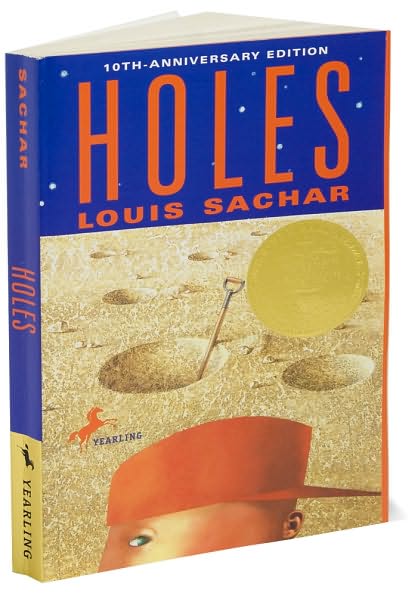This is Part Two of 1970's week and/or month, to celebrate finding some worn books in a dusty old box and discovering utility in them for the YA crowd, whether for simply reading or as antiquated cultural artifacts, like bell-bottoms and falling in love at summer camp. They didn't call it The Me Decade for nothing.
SAM DIES AT THE END
Authors and publishers have to do provocative things to gain readers. Some go with racy cover art, some engage is guerilla marketing tactics, and others simply give away the ending in the title. Such is the case with My Brother Sam is Dead, a brilliant YA fictional recounting of the social climate of the Revolutionary War, or as the Brits call it, Whoops. |
| Sorry for your loss. Have a children's book award. |
I read this book during SSR time at school, and gave periodic updates to the students, who wanted to know if/when Sam would actually die. Being a brilliant teacher, I used their interest in the title and my reading of it to solicit predictions about Sam and impromptu discussion of the role of a title in selling a book and generating interest in the book. This book is clever in that it continually keeps the reader asking when Sam will die, if at all. In my case, it had me screaming, "DIE ALREADY, YOU REBEL SCOUNDREL!"
The Brothers Collier brilliantly present an historical fiction that is set around actual events in an actual colonial locale. The main characters in the Meeker family are invented, but their tavern is not, nor are many of the supporting characters. They combed through crusty old documentation to create a realistic portrayal of daily life in the colonies, as well as the exceptional burden the rebellion put on towns, families, and individuals. I just happened to be finishing a term on the American Revolution when I picked up this book, and bow howdy, I wish I'd been able to read portions of it at the appropriate intervals to bring to life some of these debates and issues.
As it is, I referenced the book after the fact quite a bit, and we did have a stirring debate in which students portrayed patriots, loyalists, moderates, and representatives of King George. One girl who argued the Crown's perspective compared the patriots to spoiled children who needed to go to their rooms. The boy portraying James Otis yelled, "I will, soon as you get your soldier out of it!" Oh, how we laughed. Quartering Act humor, people. IT'S FUNNY. And the basis for the Third Amendment, which seems just as outdated as everything else in the grand decade of 1970-79, with the possible lone exception OF THE VERY BOOK I DISCUSS HERE.
Of course, this is historical fiction, and not necessarily indicative of anything about the decade, other than the book's publication, and that it happened to be written near the time of the US Bicentennial and its patriotic (some would argue nationalist) fervor. My Brother Sam Is Dead serves as a stark reminder of the divided loyalties in the colonies and that the movement to become independent and self-governing did not enjoy the support of the majority in its own time. And before you go calling me some pinko fascist, look! I'm now typing in RED, WHITE, and BLUE.
Back to the book: It's brilliant. they cover so much territory of the Revolution that one could teach it with this novel as its basis. There is a website full of primary source material for educational purposes, and (FREE STUFF FOR TEACHERS ALERT!) packaged curriculum that is open-ended and makes for fairly easy instructional planning. Bless the internet, and its clunky predecessor that ruled the 1970's, ARPANET.
Use this book for teaching. Read it to gain some historical understanding. Read it for pleasure if you're a historical fiction person. If you're not, this might be an appropriate starting place.
WHAT ABOUT THE BOOK'S LITERARY QUALITIES?
They're fine.
Okay, I'll comment on one thing: Tim Meeker's internal struggle to pick a side in the war, which amounts to choosing between his father and his brother. That's taut realism, and central to the story, which the authors execute with great aplomb. The symbolism of the father's gun, Brown Bess, and Sam's decision to steal it, further the split that conflicts Tim.
Okay, one more thing: word choice. Not so fine. Exhibit A:
 |
| You're writing a book for kids, not a letter to Penthouse. |
I might just skip that part, or build in ten minutes for students to giggle and snicker and take pictures of that line for the making of memes. Why not.
NEXT TIME, I YELL ABOUT
Stagflation! Just kidding. I wouldn't wish that upon anyone but Jimmy Carter. Instead, it's time to evaluate the original novel that spawned one of the greatest movies ever to grace celluloid. Let's just say I'm preparing an R.O.U.S. - a REVIEW OF UNUSUAL SIZE!
BORING STUFF
James Lincoln Collier & Christopher Collier
1974 Scholastic







